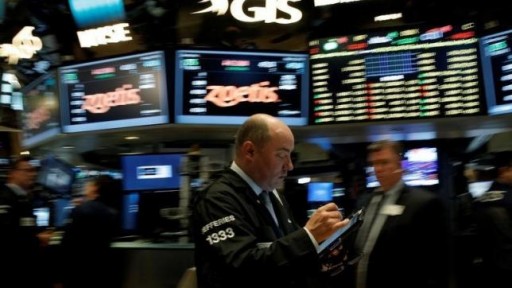- Home
- >
- Daily Accents
- >
- S&P – Bull Run is coming to its 8th year

S&P - Bull Run is coming to its 8th year

The Stock market had their calm before the storm, during this Summer, and the tensions can be felt. At 9th of September, the markets started moving down very rapidly. These types of episodes are becoming much more often, as the volatility changes. This is just about a 8th year bullish market and there is tension in the air.This is the second longest such trend. This should not have to be a surprise to anyone as the Central Banks are distributing free money and these funds are invested. The equities are becoming much more expensive in a shorter span of time and this is not a normal market rithym. Also there are funds which use robotic strategies for trading and they use the volatility to trade.
As we look at the global economies, it is hard to find news or activities, which spurs or creates growth, but there are a lot of factors that can stall that growth. When there is a crisis situation the Central banks step in and calm the markets down. This has a physiological effect on individual investors and they pulled out $7B out of the US equities, from the start of the bullish faze since 2009. Less smaller investors participated in the rallies.
One financial institution looked into examples where fast changing market sentiment in the US markets and has counted all of the cases where the volatility of the S&P 500 is moving strongly up from low of the 10 to high above 20 for only six weeks. Based on this 5 times the calm of the markets has been broken in 2014, compare this to previous 20 years where only 5 times this has happened. This period also has seen two bearish markets.
The fast fall of the markets earlier this month, was in part caused by the Japanese Central Bank and its new way of approach towards the markets, this was also followed by the ECB that left rates unchanged and this caused the S&P to come out of its narrow trading range and fell 2.5% on September 9 and that pushed CBOE up with 40%. The VIX jumped 14% and the futures of the index that expire in December fell with 0.5%. This again it happen just two months after Brexit. Then after Chine devalued their currency and the VIX jumped 113%.
After the Brexit vote, both economies the UK and EC, said that they will continue to loosen monetary policy, as the S&P fell 5.3% in two days and then went higher up again to the previous highs for 4 days. It is constructive for the Central Banks to step in and calm the markets down, but now we are in the middle of the Bullish trend and expansion, but the investors are quick to react and fear steps in quick. It is reacted much more faster and strong on economic news and geopolitical news and this creates more volatility.
These close in time shocks to the markets and high volatility are being analyzed by some analyst as a deeds of a new type of funds, which buy and sell based on the tendency of the market volatility. The Managers of these type of quantitative funds usually sell big chunks of shares, usually through futures of an index at the moment of big sell offs. The fast change from low to high volatility is partly due by them. The volatility is changing fast and not with years. Although Central banks step in and calm the markets the volatility is rising from the actions of the FED and Presidential elections. The economy still has to show ability to grow, with growth of 1.8% for a quarter since 2009. Some think that even these levels will not be achieved by end of the year. GDP is projected for this quarter of 1.5% and only the last three months of this year the growth is expected at 1.8%. This sluggish growth with time is starting to reflect in corporate profits as their options of cost cutting and restructuring are limited and also there is no growth in sales. The profits of the companies in the S&P may fall again for the 6th time this quarter. The projected earnings potential with high evaluations and the indices are trading at a very high levels. The bullish trend still has power to continue, but the general sentiment is starting to turn bearish, and at the sight of the first trouble, bad news and geopolitical risk might turn the markets to the downside.
 Varchev Traders
Varchev Traders If you think, we can improve that section,
please comment. Your oppinion is imortant for us.






